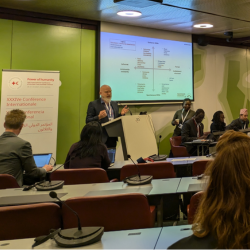-
Study
-
Quick Links
- Course Search
- Unlock Your Potential
- Still time to Apply
- Higher and Degree Apprenticeships
- Continuing Professional Development
- Book an Open Day
-
Undergraduate
- Course Search
- Application Guides
- UCAS Exhibitions
- Foundation Years
- Fees and Funding
- School & College Outreach
- Information for Parents
-
Postgraduate
- Course Search
- Application Guide
- Postgraduate Research Degrees
- Flexible Learning
- Fees and Funding
- Change Direction
- Register your Interest
-
Student Life
- Students' Union
- The Hub - Student Blog
- Accommodation
- Northumbria Sport
- Support for Students
-
Experience Northumbria
- Open Days & Events
- Virtual Tours
- Campus Tours
- Life in Newcastle
-
-
International
International
Northumbria’s global footprint touches every continent across the world, through our global partnerships across 17 institutions in 10 countries, to our 277,000 strong alumni community and 150 recruitment partners – we prepare our students for the challenges of tomorrow. Discover more about how to join Northumbria’s global family or our partnerships.
View our Global Footprint-
Quick Links
- Course Search
- Undergraduate Study
- Postgraduate Study
- Information for Parents
- London Campus
- Northumbria Pathway
- Sign up for Information
-
International Students
- Information for Students
- International Events
- Application Guide
- Entry Requirements and Education Country Agents
- Global Offices
- English Requirements
- English Language Centre
- International student support
-
International Fees and Funding
- International Undergraduate Fees
- International Undergraduate Funding
- International Masters Fees
- International Masters Funding
- International Postgraduate Research Fees
- International Postgraduate Research Funding
-
International Partners
- Agent and Representative Network
- Global Partnerships
- Global Community
-
International Mobility
- Information for Northumbria Students
- Information for Incoming Exchange Students
-
-
Business
Business
The world is changing faster than ever before. The future is there to be won by organisations who find ways to turn today's possibilities into tomorrows competitive edge. In a connected world, collaboration can be the key to success.
More on our Business Services -
Research
Research
Northumbria is a research-rich, business-focused, professional university with a global reputation for academic quality. We conduct ground-breaking research that is responsive to the science & technology, health & well being, economic and social and arts & cultural needs for the communities
Discover more about our Research -
About Us
-
About Northumbria
- Our Strategy
- Our Staff
- Place and Partnerships
- Leadership & Governance
- Academic Departments
- University Services
- History of Northumbria
- Contact us
- Online Shop
-
-
Alumni
Alumni
Northumbria University is renowned for the calibre of its business-ready graduates. Our alumni network has over 246,000 graduates based in 178 countries worldwide in a range of sectors, our alumni are making a real impact on the world.
Our Alumni - Work For Us
What will I learn on this module?
You will gain an understanding of the role data analytics can play in decision making for senior managers, and acquire a skill set which will enable you to both carry out and evaluate results from such analysis.
There is an increasing need for business leaders to know how to use data to develop meaningful and robust business solutions. This module will equip you with the practical knowledge and confidence to achieve this. Specific topics covered will vary but are likely to include content such as Project Management; Data Management for Decision Making (using specialist software packages such as SAS); Statistics for Business and Predictive Modelling.
How will I learn on this module?
You will learn through a series of hands-on, experiential learning sessions where you will be guided in the use of various software packages to reach decisions and will then consider their potential uses and organisational implications. These will all take place in computer workshops to facilitate the acquisition of the necessary practical skills.
Some of these packages may be familiar to you already (e.g. Microsoft Excel) while others are likely to be new to you (e.g. SPSS, SAS). In each session, an experienced practitioner academic will introduce the key underlying theoretical concepts of the techniques to be covered but the emphasis will be on rigorous practical exploration of techniques for managing and interrogating data sets to reach meaningful and practical conclusions.
How will I be supported academically on this module?
You will be supported primarily by the module tutor, who will be available for guidance and consultation about the module and its requirements. A teaching and learning plan and module Blackboard site will also be used extensively to support learning, set out the schedule of work and provide materials. Less formally, all members of the teaching team will provide support and assistance in the taught sessions. Given the practical nature of the work, there will be ample opportunity for discussion and provision of formative feedback in the class contact time.
What will I be expected to read on this module?
All modules at Northumbria include a range of reading materials that students are expected to engage with. Online reading lists (provided after enrolment) give you access to your reading material for your modules. The Library works in partnership with your module tutors to ensure you have access to the material that you need.
What will I be expected to achieve?
Knowledge & Understanding:
1. Knowledge of decision making techniques for business problem solving.
Intellectual / Professional skills & abilities:
2. The ability to use a range of management decision making software packages;
3. The ability to analyse quantitative data using appropriate techniques;
4. The ability to interpret outputs from data analysis and to use these to gain insights into potential courses of action.
How will I be assessed?
You will be assessed in a single assignment (3000 words).
This will focus on the practical application of the techniques discussed to a realistic business scenario.
While this assignment will be submitted as a single piece of work at the end of the teaching period, it will be possible for students to consider it as the topics are explored in class allowing participants to complete it alongside the taught sessions.
The assignment will assess all module learning outcomes.
Ongoing formative feedback will also be provided in the taught sessions by the module teaching team.
Pre-requisite(s)
None
Co-requisite(s)
None
Module abstract
Business decision making is an increasingly complex field. Some of this complexity is due to the range and amount of data that managers are expected to process on a regular basis: for example examining large data sets for emerging trends, monitoring progress on projects or forecasting for decision making.
This module will equip you with some of the practical skills needed to manage this complexity and to generate conclusions which can be used for management decision making. Through experiential learning, you will develop the ability to analyse data using a variety of approaches, each best suited to particular problem scenarios. Since the emphasis is on practical applications of the techniques discussed many classes will take place in IT workshops very much enabling participants to ‘learn by doing’. This IT based approach will complement the learning found in other modules by developing a different skill set and ensuring that the learning experienced has a real world application in business.
Course info
Credits 10
Level of Study Postgraduate
Mode of Study 15 months
Location Singapore
City Singapore
Start September, December, March or June
All information is accurate at the time of sharing.
Full time Courses are primarily delivered via on-campus face to face learning but could include elements of online learning. Most courses run as planned and as promoted on our website and via our marketing materials, but if there are any substantial changes (as determined by the Competition and Markets Authority) to a course or there is the potential that course may be withdrawn, we will notify all affected applicants as soon as possible with advice and guidance regarding their options. It is also important to be aware that optional modules listed on course pages may be subject to change depending on uptake numbers each year.
Contact time is subject to increase or decrease in line with possible restrictions imposed by the government or the University in the interest of maintaining the health and safety and wellbeing of students, staff, and visitors if this is deemed necessary in future.
Useful Links
Find out about our distinctive approach at
www.northumbria.ac.uk/exp
Admissions Terms and Conditions
northumbria.ac.uk/terms
Fees and Funding
northumbria.ac.uk/fees
Admissions Policy
northumbria.ac.uk/adpolicy
Admissions Complaints Policy
northumbria.ac.uk/complaints









